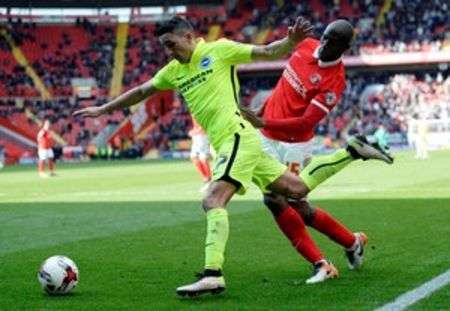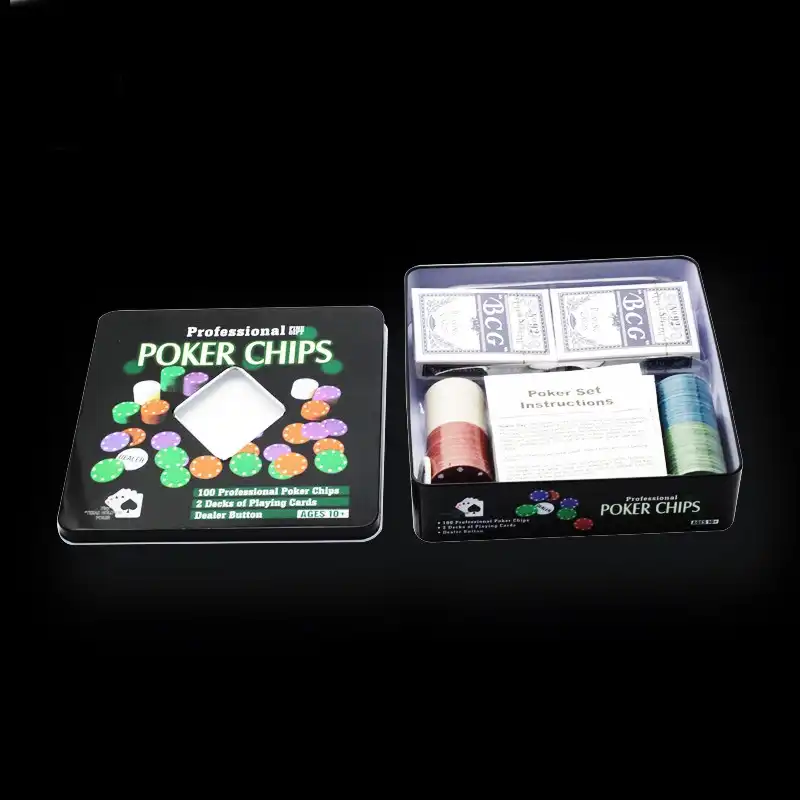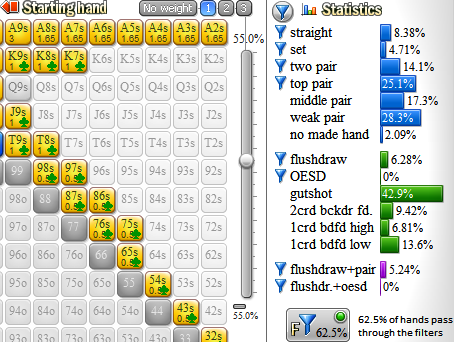

Holden Equinox EQ (2017-2020) (Midsize / Medium SUV): 4.7 out of 5 stars from 16 genuine reviews on Australia's largest opinion site ProductReview.com.au. Texas hold 'em pocket card nicknames. The following is a list of nicknames for pairs of two playing cards, usually hole cards, used in poker derivatives such as Texas hold 'em and Omaha hold 'em poker. These nicknames are usually used by the player when announcing their hand or by spectators or commentators who are watching the game.
Good Texas Hold'em Strategy
Although it's possible to talk about Texas Hold'em strategy indefinitely, due to the game's subtle complexities, we've compiled three of the most salient pieces of poker advice every aspiring pro should know.
Pulling off fancy bluffs and check-raising the river with a small value bet may be enticing propositions. However, if you haven't mastered the basics, then you'll never have the ability to play like Phil Ivey and run these sorts of complex plays.
With this in mind, here are some good strategies online players with a burgeoning bankroll should commit to memory.
Cut Down the Amount of Hands You Play
One of the biggest mistakes novice players make when they first start playing Texas Hold'em is to get involved in too many hands.
Although the prospect of making a strong hand or bluffing our opponent is appealing, it's can actually be a major drain on your bankroll if you get involved in a lot of pots.
One important fact to remember is that if you play a lot of hands you will make a pair less than two-thirds of the time and this often means you'll have to fold a lot post-flop.
Secondly, if you do manage to make a hand it will be usually be weaker than average, which means you'll lose pots (and therefore money) at showdown more often.
Be More Aggressive
Coupled with a habit of playing more hands than is profitable, newbies will often adopt a passive strategy when they enter a pot.
Instead of raising or re-raising they will usually limp or call and allow another player to take control of the hand. This is potentially fatal because it means the passive player is more likely to be bullied into submission and, therefore, lose the pot.
There's an old adage in poker that you should try to remember if you want to avoid being passive and make more money: 'If a hand is not worth raising, then it's not worth playing.'
Be More Active
Although standard online Texas Hold'em strategy advocates that you take regular breaks, the reality is that most professional grinders never stray too far from their computers.
It may not be the right thing to do, but many online poker pros will put in 18-hour sessions without a second thought for their health, or, indeed, the health of their bankroll.
In the world of Texas Hold'em online, volume is king and if you aren't prepared to sit for hours on end at a computer then being a professional isn't for you.

Always Try and Play in Position
Position is king at the poker table and before you enter any pot you should consider where you are in relation to the button, the blinds and to any active players. Essentially this means you should play more hands the closer you are to the button because you'll have the benefit of extra information. Sometimes playing out of position is unavoidable, but if you want to have the greatest advantage over your opponents it's important to always play in position.
Get Ready With Your HUD
Hand reading is a basic tenet of good poker, but when you're an online pro you can often get away with substandard powers of deduction by using your HUD. A Heads Up Display unit can uncover a multitude of tendencies on your opponent and help your decision making process immensely.
Nash equilibrium is one of the most ubiquitous terms in game theory. It's used everywhere from meetings in small companies through poker strategy materials to the movie 'A Beautiful Mind'. The term gets its name from John Forbes Nash, Jr. a brilliant scientist responsible for many breakthroughs in economics, mathematics and game theory. Basic understanding of the Nash equilibrium can be invaluable in any non-cooperative game involving two or more players and poker certainly falls under that definition.
Game Theory
Let's start with a brief explanation of the game theory. According to the official definition, game theory is 'the study of mathematical models of conflict and cooperation between intelligent rational decision-makers'. It's the study of human behaviour in strategic settings that has wide applications in economics, psychology, computer science, poker etc. Now that we know what game theory is let's take a step back and figure out what constitutes a 'game'. To have a game you need at least two players, some incentives to play the game (clearly defined outcomes for the players) and rules.
Nash Equilibrium
Another official definition tells us that 'In game theory, the Nash equilibrium is a solution concept of a non-cooperative game involving two or more players, in which each player is assumed to know the equilibrium strategies of the other players, and no player has anything to gain by changing only their own strategy.' In the poker context, it basically means that there's no point in playing anything but the game theory optimal strategy if we know our opponent is also playing a game theory optimal strategy since we can't exploit the GTO strategy.
Real Life Example
To further simplify the idea of Nash equilibrium, let's look at a classic example of prisoner's dilemma. In the hypothetical situation, two people are questioned separately about a crime they both committed. If they both confess to committing the crime they will spend 8 years in prison. If they both decide to keep quiet they will get locked up for a year on some minor charges. If the first player decides to confess (giving up his 'friend' in the process) and the second one lies, the first one will walk free and the first one will spend 10 years in prison (and vice versa).
As a poker player, you can easily determine the best strategy in this situation. It makes the most sense to confess since both risk and reward of that play are higher for you than the alternative regardless of the other player's choice. In this particular example confessing is the Nash equilibrium since if we knew that the other player will confess we can't punish him for that play by changing our strategy, we can only punish ourselves. Of course, lying would be better for the group but poker is not exactly a group activity and that's outside of the scope of this article.
Nash Equilibrium HU Poker Chart
Poker is a very, very complicated game. Much more so than the hypothetical situation described above. That's why we still haven't figured out the game theory optimal strategy even for less complicated formats like HU Limit Hold'em (though we're somewhat close in this particular case) and judging from how fast processing power of computers increase from year to year, this won't happen anytime soon for the more complicated formats like 6-max or 9-max Holdem/PLO. However, if we greatly simplified the game and assumed that players in a HU game can only go all-in or fold in the SB position and call or fold in the BB position we can determine the nash equilibrium for that situation:
Imagine a player who's on extreme tilt near the end of your head's up match and decides to push every hand. We can call that player with a much wider range than Nash equilibrium would suggest. Conversely, if an extremely nitty recreational player is only willing to push premium pocket pairs no matter the stack size we also shouldn't stick with blindly following the Nash equilibrium table and instead punish his narrow hand selection with frequent small raises.
What is Nash Equilibrium Good for Then When it Comes to Playing Poker?
It's valuable in a couple of ways. It can serve as a baseline for our strategy. As the number of meaningful choices we can make in the game decreases (in the context of poker game this will happen as the stack to pot ratio decreases) it makes more sense to actually follow the equilibrium. While even in today's games we can still exploit players in HU even with stacks as low as 8-10 BB's it's actually not a bad rule of thumb to start using the Nash equilibrium table as our stack reaches that point, especially when we're just starting out or we're playing against a tough competition.

Holden Equinox EQ (2017-2020) (Midsize / Medium SUV): 4.7 out of 5 stars from 16 genuine reviews on Australia's largest opinion site ProductReview.com.au. Texas hold 'em pocket card nicknames. The following is a list of nicknames for pairs of two playing cards, usually hole cards, used in poker derivatives such as Texas hold 'em and Omaha hold 'em poker. These nicknames are usually used by the player when announcing their hand or by spectators or commentators who are watching the game.
Good Texas Hold'em Strategy
Although it's possible to talk about Texas Hold'em strategy indefinitely, due to the game's subtle complexities, we've compiled three of the most salient pieces of poker advice every aspiring pro should know.
Pulling off fancy bluffs and check-raising the river with a small value bet may be enticing propositions. However, if you haven't mastered the basics, then you'll never have the ability to play like Phil Ivey and run these sorts of complex plays.
With this in mind, here are some good strategies online players with a burgeoning bankroll should commit to memory.
Cut Down the Amount of Hands You Play
One of the biggest mistakes novice players make when they first start playing Texas Hold'em is to get involved in too many hands.
Although the prospect of making a strong hand or bluffing our opponent is appealing, it's can actually be a major drain on your bankroll if you get involved in a lot of pots.
One important fact to remember is that if you play a lot of hands you will make a pair less than two-thirds of the time and this often means you'll have to fold a lot post-flop.
Secondly, if you do manage to make a hand it will be usually be weaker than average, which means you'll lose pots (and therefore money) at showdown more often.
Be More Aggressive
Coupled with a habit of playing more hands than is profitable, newbies will often adopt a passive strategy when they enter a pot.
Instead of raising or re-raising they will usually limp or call and allow another player to take control of the hand. This is potentially fatal because it means the passive player is more likely to be bullied into submission and, therefore, lose the pot.
There's an old adage in poker that you should try to remember if you want to avoid being passive and make more money: 'If a hand is not worth raising, then it's not worth playing.'
Be More Active
Although standard online Texas Hold'em strategy advocates that you take regular breaks, the reality is that most professional grinders never stray too far from their computers.
It may not be the right thing to do, but many online poker pros will put in 18-hour sessions without a second thought for their health, or, indeed, the health of their bankroll.
In the world of Texas Hold'em online, volume is king and if you aren't prepared to sit for hours on end at a computer then being a professional isn't for you.
Always Try and Play in Position
Position is king at the poker table and before you enter any pot you should consider where you are in relation to the button, the blinds and to any active players. Essentially this means you should play more hands the closer you are to the button because you'll have the benefit of extra information. Sometimes playing out of position is unavoidable, but if you want to have the greatest advantage over your opponents it's important to always play in position.
Get Ready With Your HUD
Hand reading is a basic tenet of good poker, but when you're an online pro you can often get away with substandard powers of deduction by using your HUD. A Heads Up Display unit can uncover a multitude of tendencies on your opponent and help your decision making process immensely.
Nash equilibrium is one of the most ubiquitous terms in game theory. It's used everywhere from meetings in small companies through poker strategy materials to the movie 'A Beautiful Mind'. The term gets its name from John Forbes Nash, Jr. a brilliant scientist responsible for many breakthroughs in economics, mathematics and game theory. Basic understanding of the Nash equilibrium can be invaluable in any non-cooperative game involving two or more players and poker certainly falls under that definition.
Game Theory
Let's start with a brief explanation of the game theory. According to the official definition, game theory is 'the study of mathematical models of conflict and cooperation between intelligent rational decision-makers'. It's the study of human behaviour in strategic settings that has wide applications in economics, psychology, computer science, poker etc. Now that we know what game theory is let's take a step back and figure out what constitutes a 'game'. To have a game you need at least two players, some incentives to play the game (clearly defined outcomes for the players) and rules.
Nash Equilibrium
Another official definition tells us that 'In game theory, the Nash equilibrium is a solution concept of a non-cooperative game involving two or more players, in which each player is assumed to know the equilibrium strategies of the other players, and no player has anything to gain by changing only their own strategy.' In the poker context, it basically means that there's no point in playing anything but the game theory optimal strategy if we know our opponent is also playing a game theory optimal strategy since we can't exploit the GTO strategy.
Real Life Example
To further simplify the idea of Nash equilibrium, let's look at a classic example of prisoner's dilemma. In the hypothetical situation, two people are questioned separately about a crime they both committed. If they both confess to committing the crime they will spend 8 years in prison. If they both decide to keep quiet they will get locked up for a year on some minor charges. If the first player decides to confess (giving up his 'friend' in the process) and the second one lies, the first one will walk free and the first one will spend 10 years in prison (and vice versa).
As a poker player, you can easily determine the best strategy in this situation. It makes the most sense to confess since both risk and reward of that play are higher for you than the alternative regardless of the other player's choice. In this particular example confessing is the Nash equilibrium since if we knew that the other player will confess we can't punish him for that play by changing our strategy, we can only punish ourselves. Of course, lying would be better for the group but poker is not exactly a group activity and that's outside of the scope of this article.
Nash Equilibrium HU Poker Chart
Poker is a very, very complicated game. Much more so than the hypothetical situation described above. That's why we still haven't figured out the game theory optimal strategy even for less complicated formats like HU Limit Hold'em (though we're somewhat close in this particular case) and judging from how fast processing power of computers increase from year to year, this won't happen anytime soon for the more complicated formats like 6-max or 9-max Holdem/PLO. However, if we greatly simplified the game and assumed that players in a HU game can only go all-in or fold in the SB position and call or fold in the BB position we can determine the nash equilibrium for that situation:
Imagine a player who's on extreme tilt near the end of your head's up match and decides to push every hand. We can call that player with a much wider range than Nash equilibrium would suggest. Conversely, if an extremely nitty recreational player is only willing to push premium pocket pairs no matter the stack size we also shouldn't stick with blindly following the Nash equilibrium table and instead punish his narrow hand selection with frequent small raises.
What is Nash Equilibrium Good for Then When it Comes to Playing Poker?
It's valuable in a couple of ways. It can serve as a baseline for our strategy. As the number of meaningful choices we can make in the game decreases (in the context of poker game this will happen as the stack to pot ratio decreases) it makes more sense to actually follow the equilibrium. While even in today's games we can still exploit players in HU even with stacks as low as 8-10 BB's it's actually not a bad rule of thumb to start using the Nash equilibrium table as our stack reaches that point, especially when we're just starting out or we're playing against a tough competition.
More Top Rated Content
Articles
- How to Make a Poker Schedule - Tools You Can Use
- Motivational YouTube Videos - Friend or Foe?
- How to Get in the Zone and Play Your Best Poker
Coaching Videos
Jamie fraser and black jack randall.
Holdem Eq Poker
- Optimizing Sleep for Poker Success
- Hypnotherapy in Poker

